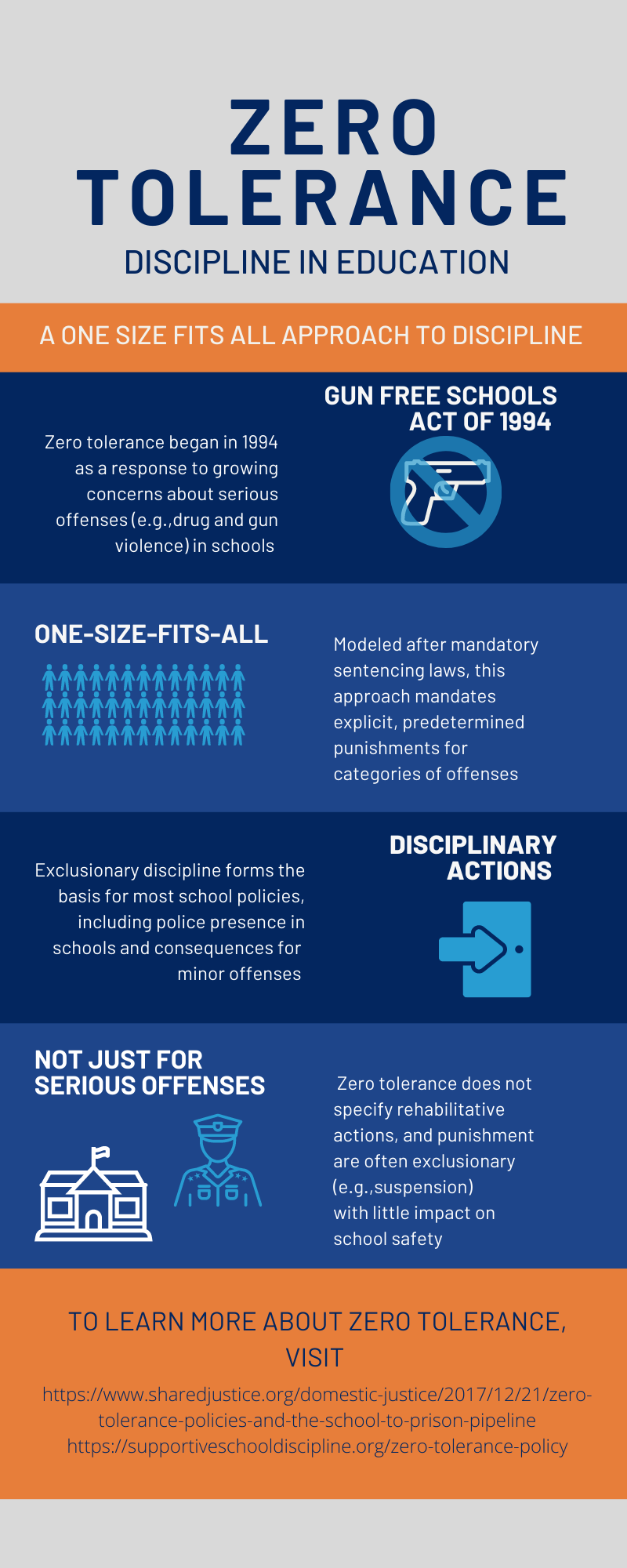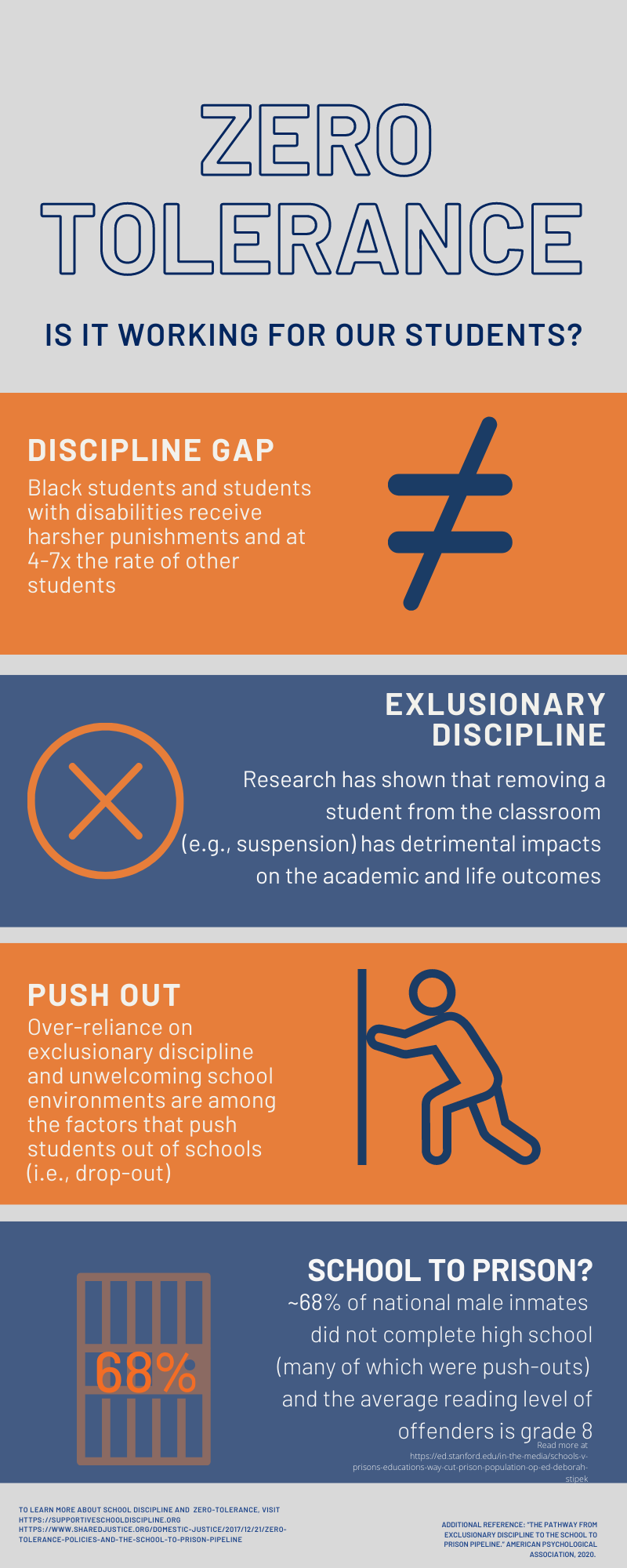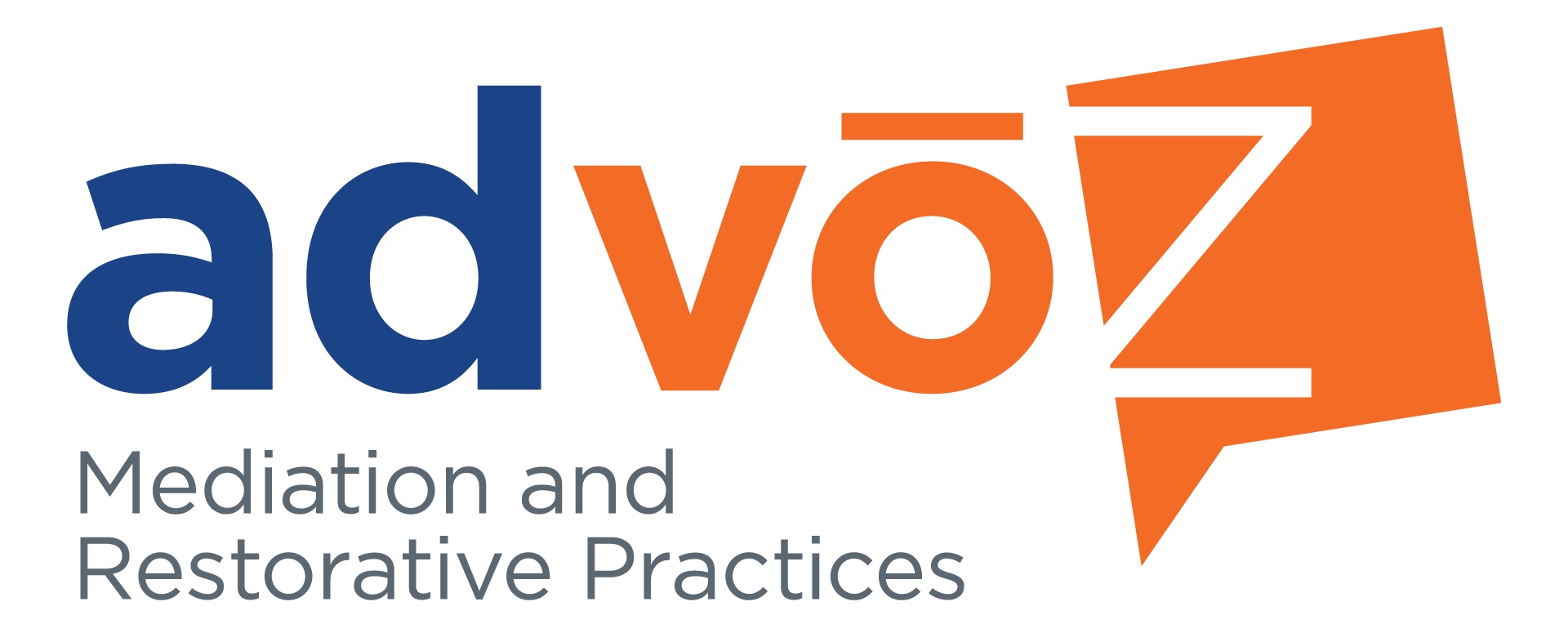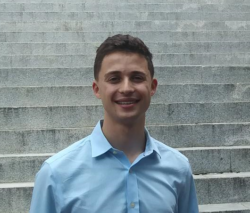Before I share what I learned while creating Zero Tolerance and Restorative Justice (RJ) in education for Advoz, allow me to introduce myself briefly. My name is Catherine Wise. I am a college student studying neuroscience and Spanish at the Texas Christian University located in Fort Worth, Texas.
Early this spring, I reached out to the incredible staff at Advoz, asking what I could do to promote the mission and vision while achieving my goal of educating the Lancaster community. After some conversation, we decided on a series of infographics designed to start an open and honest dialogue about zero tolerance and the potential harm of the overuse of exclusionary discipline within the community. In the same series, we wanted to provide resources about using restorative methods of conflict management in schools and promote ways individuals can get involved with the process through training. Two of the four infographics (i.e., those on zero tolerance) are available for download at the end of this blog post.

In earnest, I was entirely unfamiliar with the processes of graphic design, social media, and writing infographic text for a broad audience going into this project. With the help of Chris Fitz, I was able to learn some of the necessary skills on the fly. In a series of two blog posts, I will share with you some things I learned along the way.
First, I learned how powerful shame can be and to avoid unnecessarily evoking it when discussing complex topics. Although I study psychology, I had never honestly thought about how powerful shame can be. Working on this project with Advoz staff gave me space and time to learn that evoking shame, be that intentional or not, can cause people to put up their defenses and stop engaging with information. More importantly, shame hinders conversation.
When I showed him my first drafts, Chris Fitz highlighted several areas where he thought I was using “shame language” or “shame iconography.” For instance, under the “Disciplinary Action” subtitle (see left image, panel three), I had initially used an icon of a teacher scolding a student and language that assigned blame to the school faculty for using exclusionary discipline (e.g., teachers and Student Resource Officers). Chris shared with me that this could make their partners–teachers, administrators, and police– feel shame for using exclusionary discipline or not understanding the gravity of its overuse. This is the opposite effect of what I wanted to achieve.

As an individual who reads and writes scientific literature, I am used to synthesizing evidence, coming to a conclusion, and not dwelling on the emotional response it might produce in my audience. In other words, it had not occurred to me that the language and imagery I used could create shame in school faculty who have suspended or expelled students. Further, I did not consider how this would be received by people who did not fully understand the impact of zero-tolerance policies on their students. I thought about shame a lot after my conversation with Chris. I had just learned that shame can motivate avoidance in a psychology course I was taking at the time. After some thought, I realized that evoking shame could cause teachers to stop engaging with the infographic. They may not have even reached the resources to change their impact on students’ lives.
At first, I was genuinely stumped on how to share that exclusionary discipline is overused without shaming the school faculty who administer it. I thought it would be impossible for me to find a way to share this information without blaming the parties involved. After a lot of thought and more conversation with Chris, I changed the language. I ended up with the image of an arrow pointing to a door because it captures the idea of exclusionary discipline without shaming the faculty required to use it.
Overall, I think that shame is something that we should all be mindful of when we enter a dialogue about complex subjects. While it is a natural part of taking accountability and growth as an individual, shame is also extremely uncomfortable to sit with, feel, and process. Shame makes the person experiencing the emotion want to put up their defenses and stop listening. So, next time you find that you need to have a difficult conversation with someone in your life, take some time to think about language, tone of voice, and gestures that could evoke shame. I can promise you that it is not always easy to recognize to start. Still, with practice, anyone can shift the conversation away from assigning blame to fostering understanding and accountability.








